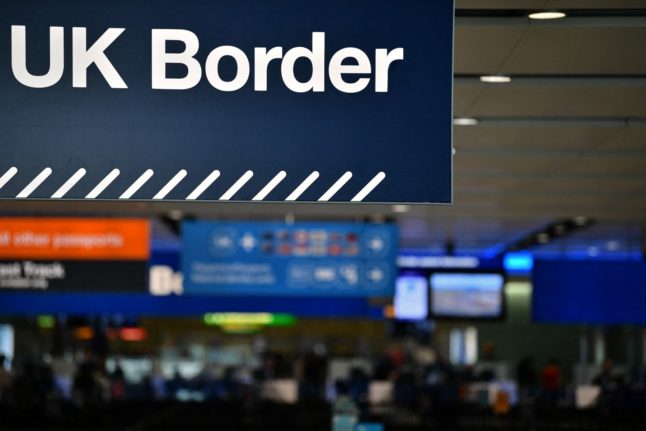“The countdown is over,” declared the headline of Swedish daily Dagens Nyheter, while Svenska Dagbladet hailed a “historic day”.
DN:s förstasida fredag, nu skrivs europeisk historia. pic.twitter.com/1TwjVaCj9T
— Peter Wolodarski (@pwolodarski) January 30, 2020
In an editorial in liberal Dagens Nyheter, the newspaper called for “the strongest possible links” between the UK and EU, and described Brexit as a “tough blow” for both sides.
“Negotiations between the EU and the UK on the future relationship will be difficult and require tough compromises – on both sides,” the editorial concluded.
“But the stronger the resulting bond, the greater the chance that Brexit will remain a 'unique example of de-globalization' – a temporary setback, rather than an unfortunate turning point.”
An editorial in Aftonbladet, which takes an independent but centre-left stance, voiced similar views.
“Last year, over 4,000 British citizens became Swedish citizens, many so-called 'Brexit refugees',” it noted.
“And despite all the harsh words, all the mistakes, all the populism and distortion of facts that led to Brexit, the way forward must be about collaboration.”
British Ambassador to Sweden Judith Gough shared a photo from a breakfast with Swedish MPs, which she said demonstrated the “enduring friendship” between the two countries.
Wonderful breakfast hosted by Speaker of the Riksdag @andreasostgote with MPs to mark the UK’s departure from the EU. A clear demonstration of the depth, breadth & enduring friendship of our bilateral relationship. We enjoyed the Churchill eggs! ?? ?? pic.twitter.com/gAiwyZZP2R
— Judith Gough (@JudithGoughFCO) January 31, 2020
Indeed, Sweden and the UK have traditionally enjoyed an extremely close relationship before and within the EU, with the two countries overwhelmingly voting the same way in EU votes.
As well as political ties, the countries are culturally close; many Swedes live or have spent time in the UK, and the high level of English language skills is one reason that the country is home to many anglophiles.
Meanwhile, the Confederation of Swedish Enterprise warned that the risks associated with a hard Brexit had not gone away, as the UK left the bloc with a Withdrawal Agreement in place, but no agreements regarding the future of the UK-EU relationship.
“It's now that the negotiations really begin, negotiations that could get truly complicated,” said Anna Stellinger, head of international and EU issues at the organization, speaking to the TT newswire.
“Putting together a new trade deal usually takes many years. And in practice the negotiators have no more than six months if the EU member countries' and British parliaments are going to have time to vote on the deal before the Brits leave the one-year transition period at the end of the year,” she said.
She said a hard Brexit was the “greatest risk”, but that it was most likely the EU and UK would extend the negotiation period.



 Please whitelist us to continue reading.
Please whitelist us to continue reading.
Member comments